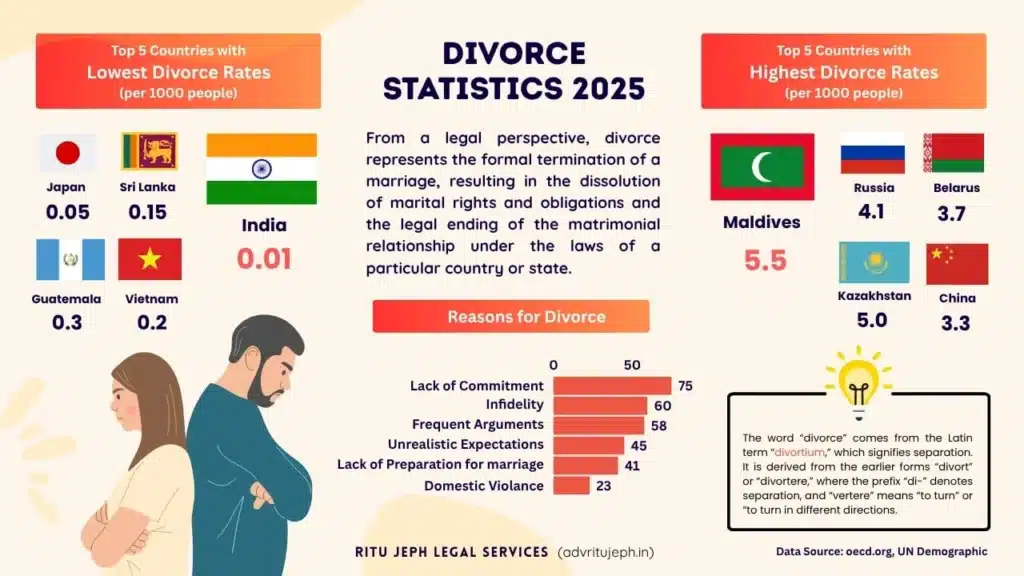Book Appointment Now

Delhi HC Divorce Cruelty: Court Upholds Man’s Divorce on Cruelty Grounds
Delhi HC Divorce Cruelty ruling upheld a man's divorce due to his wife's mental cruelty, like abusive language and insults, while denying alimony since she is financially independent, highlighting how verbal harm can dissolve marriages under Indian law.
Have you ever wondered what can lead to a divorce in India, especially when one partner claims the other is being cruel? Recently, on October 17, 2025, the Delhi High Court made headlines by upholding a lower court’s decision to grant a man a divorce based on cruelty by his wife. This case shows how mental harm, like repeated insults, can end a marriage.
First, let’s understand the basics. In India, under the Hindu Marriage Act (a law from 1955 that covers marriages for Hindus), couples can get a divorce if one side proves cruelty. Cruelty here means actions that cause serious mental or physical pain, making it impossible to live together happily. It’s not just about hitting someone—words can hurt deeply too. In this ruling, the court focused on mental cruelty, like using bad language that damages someone’s dignity.
Now, about this specific case. The couple got married in January 2010, but they only lived together for about a year. They’ve been apart for over 14 years. The husband asked for a divorce in a family court, saying his wife was cruel. In August 2023, the family court agreed and granted the divorce. The wife then appealed to the Delhi High Court, but judges Anil Kshetarpal and Harish Vaidyanathan said no—the lower court’s decision was right. They pointed out that the wife used “abusive and derogatory language” against the husband and his family, which counts as mental cruelty under Section 13(1)(ia) of the Hindu Marriage Act.
ALSO READ: Delhi High Court’s Take on Misuse of Section 498A in Family Disputes
What exactly did the wife do? From reports, she called the husband’s mother “characterless” and even questioned if the husband was really his parents’ child—basically calling him illegitimate. She also sent nasty text messages, got physically rough sometimes, and tried to isolate him from friends and family. The husband said this made his life miserable. The wife denied it and claimed he was the cruel one, saying he pressured her (a senior officer in the Indian Railways) to use her job to get him work as a lawyer.
When she refused, she said he turned mean. But the court didn’t buy her side fully. They said her actions were proven and serious enough to break the marriage. Plus, they refused to give her any ongoing money (called alimony) because she’s a well-paid government worker with no kids to support. The judges explained alimony is for helping someone who can’t support themselves, not for getting rich or equalizing money between two able people.
This decision isn’t alone, online searches show similar cases popping up more often. For example, in a 2023 case, the Supreme Court said false claims about a partner’s character can be cruelty. Or take a Madhya Pradesh High Court ruling from October 27, 2025, where calling a husband an “alcoholic” without proof was seen as mental cruelty, leading to divorce.
Stats from the National Crime Records Bureau (as of 2024 data) show divorce cases in India rose by 15% in recent years, with cruelty being a top reason in about 30% of them. Interestingly, while women file most cruelty complaints under laws like Section 498A of the Bharatiya Nyaya Sanhita (the new criminal code replacing the old IPC), courts are now recognizing men can be victims too. In urban areas like Delhi, mental health experts say social media and work stress make verbal fights worse, leading to more breakups.

Why is this useful to know? Well, marriages can be tough, and understanding similar cases helps spot problems early. For instance, if arguments turn into constant name-calling or threats, it might cross into cruelty. Online data shows evidence like texts, emails, or witness statements is key in court. In 2025, with more people using apps, digital proof is becoming common in these cases.
ALSO READ: Recent Court Rulings on Section 144 BNSS: When Educated Wives Lose Maintenance
Here are some practical tips if you’re dealing with something like this:
- Talk it out first. Try counseling—groups like the Family Court Counseling Centers in Delhi offer free help to fix things before court.
- Keep records. If things get bad, note down incidents, save messages, or talk to a trusted friend who can back you up.
- Get legal advice. See a family lawyer early; schemes like free legal aid from the Delhi State Legal Services Authority are there for low-income folks.
- Focus on mental health. Cruelty hurts inside—reach out to helplines like iCall (9152987821) for support.
- Plan finances. Like in this case, courts look at who can earn; build your own savings to avoid depending on alimony.
In the end, this ruling reminds us that respect is the glue in any relationship. Words can wound just as much as actions, and courts are stepping in to say enough is enough. It affects thousands in India, where divorce rates are climbing in cities. If the government or communities push more for pre-marriage education, maybe fewer cases end up like this.



